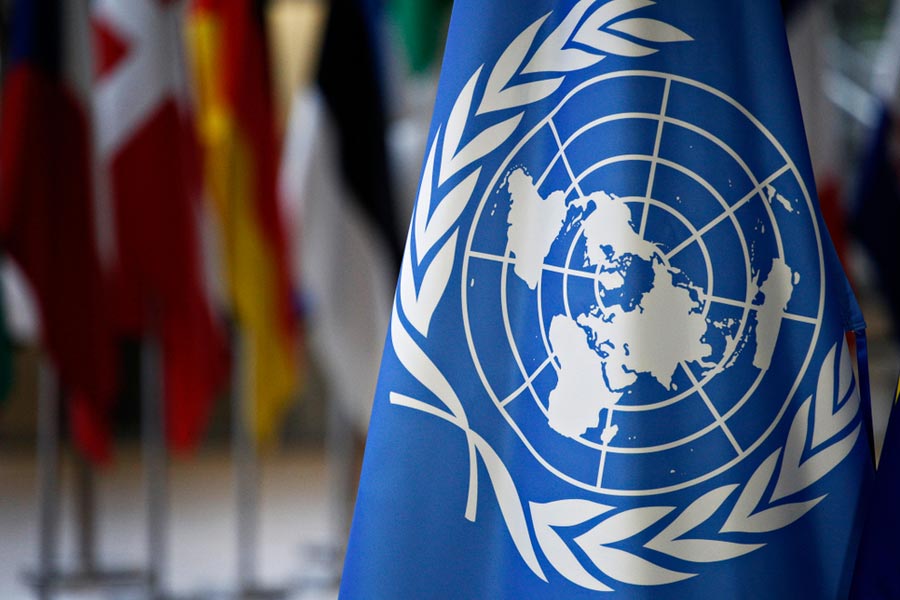India has voted in favour of a draft resolution in the UN General Assembly that demanded an immediate humanitarian ceasefire in the Israel-Hamas conflict and unconditional release of all hostages.
The 193-member UN General Assembly overwhelmingly adopted the resolution at an emergency special session on Tuesday, with 153 nations voting in its favour, 10 voting against and 23 abstentions.
India was among the 153 nations that voted in favour of the resolution, adopted amid a round of applause in the GA hall.
Those voting against included Austria, Israel and the US while Germany, Hungary, Italy, Ukraine and the UK were among those who abstained.
The resolution, introduced by Egypt, demanded “an immediate humanitarian ceasefire” and reiterated its “demand that all parties comply with their obligations under international law, including international humanitarian law, notably about the protection of civilians”.
It also demanded the “immediate and unconditional release of all hostages, as well as ensuring humanitarian access”.
The resolution however did not name Hamas. Austria and the US had each moved an amendment to the draft text.
The amendment tabled by Austria called for the insertion of the line “held by Hamas and other groups” after the word “hostages” in the main draft as well as called for ensuring "immediate" humanitarian access.
The amendment tabled by the US called for the insertion, in the main draft, of the paragraph “unequivocally rejects and condemns the heinous terrorist attacks by Hamas that took place in Israel starting October 7 and the taking of hostages”.
India voted in favour of both the amendments.
However, the two amendments to the draft resolution could not be adopted since they failed to get the required two-thirds majority of votes.
The Austrian-introduced amendment got 89 votes in favour, 61 against and 20 abstentions while the US-proposed amendment got 84 votes in favour, 62 against and 25 abstentions.
In October, India had abstained in the General Assembly on a resolution that had called for an immediate humanitarian truce in the Israel-Hamas conflict leading to a cessation of hostilities and unhindered humanitarian access in the Gaza strip.
The resolution was adopted with 120 nations voting in favour, 14 against and 45 abstentions.
Along with India, countries that had abstained from the October resolution included Australia, Canada, Germany, Japan, Ukraine and the United Kingdom.
Ahead of the vote on Tuesday, US Ambassador to the UN, Linda Thomas-Greenfield, said that while Washington supports “components” of the resolution proposed, it also supports "speaking out with one voice to condemn Hamas” for its terrorist actions on October 7.
“Why is that so hard? To say, unequivocally, that murdering babies and gunning down parents in front of their children is horrific. That burning down houses while families shelter inside and taking civilians hostage is abhorrent,” she said.
“It’s why today, the United States is proposing an amendment that unequivocally rejects and condemns these atrocities,” Thomas-Greenfield said, urging member states to vote yes and “declare that what happened on October 7th is intolerable. Period. This is the bare minimum. And it should not be that difficult”.
The UNGA resolution also took note of the December 6 letter by UN Secretary-General Antonio Guterres written under Article 99 of the UN Charter, the first time that Guterres invoked the Article since he became Secretary-General in 2017.
Article 99 states that “the Secretary-General may bring to the attention of the Security Council any matter which in his opinion may threaten the maintenance of international peace and security”.
By writing to the President of the Security Council under Article 99, Guterres invoked “one of the few powers” that the UN Charter gives him.
“Constitutionally, it is the most powerful tool that he has,” his spokesperson Stephane Dujarric had said, expressing hope that the international community will be moved by it to push and put in place a humanitarian ceasefire.
Israel’s Ambassador to the UN Gilad Erdan told the General Assembly that a ceasefire will not benefit the people of Gaza but will only “benefit the terrorists” who steal the humanitarian aid for themselves.
“What will happen the day after the ceasefire? Will this bring peace and stability to the region? Of course not. A ceasefire is a death sentence for countless more Israelis and Gazans. By voting in favour of this resolution, you are supporting the survival of Jihadist terror and the continued suffering of the people of Gaza,” he said.
The vote in the UNGA came days after the 15-nation Security Council failed to adopt a resolution that would have demanded an immediate humanitarian ceasefire in Gaza after the US exercised its veto.
The UNSC resolution, tabled by the United Arab Emirates and backed by over 90 member states, got 13 votes in its favour while the UK abstained.
More than 1,200 people were killed, including 33 children, and thousands injured in the terror attacks by Hamas and other Palestinian armed groups on October 7.
Since the start of Israel’s military operation, the Ministry of Health (MoH) in Gaza said at least 18,205 Palestinians have been killed in Gaza, about 70 per cent women and children, and about 49,645 are reportedly injured, according to estimates by the UN Office for the Coordination of Humanitarian Affairs.











